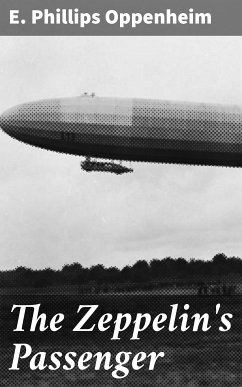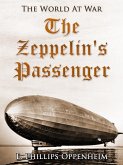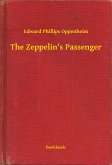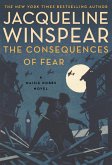In 'The Zeppelin's Passenger,' E. Phillips Oppenheim crafts a thrilling tale steeped in the intrigue of early 20th-century aviation and espionage. Set against the backdrop of the burgeoning airship era, the novel explores themes of loyalty, betrayal, and the precarious balance of power among nations. Oppenheim'Äôs literary style is characterized by its brisk pacing and vivid descriptiveness, immersing the reader in a world where technological marvels and human ambitions intertwine. The narrative's tension crescendos as secrets unfold and alliances shift, mirroring the protagonist's inner conflicts and the geopolitical currents of his time. E. Phillips Oppenheim, often dubbed the 'Prince of Storytellers,' was a prolific British author whose works frequently incorporated elements of mystery and adventure. His experiences as a writer during the tumultuous pre-World War I era undoubtedly informed his perspective on international relations, technological advancement, and human psychology. Oppenheim's deep understanding of the shifting social landscape of his time is evident in this novel, making it a poignant reflection of contemporary anxieties regarding innovation and loyalty. For readers captivated by the intrigue of espionage and the romance of early aviation, 'The Zeppelin's Passenger' is a must-read. Oppenheim's deft storytelling and rich character development offer a compelling portrait of a world on the brink of modernity, inviting both historical enthusiasts and lovers of suspense to delve into its pages and navigate the skies of suspense and intrigue.
Dieser Download kann aus rechtlichen Gründen nur mit Rechnungsadresse in A, B, BG, CY, CZ, D, DK, EW, FIN, F, GR, H, IRL, I, LT, L, LR, M, NL, PL, P, R, S, SLO, SK ausgeliefert werden.









